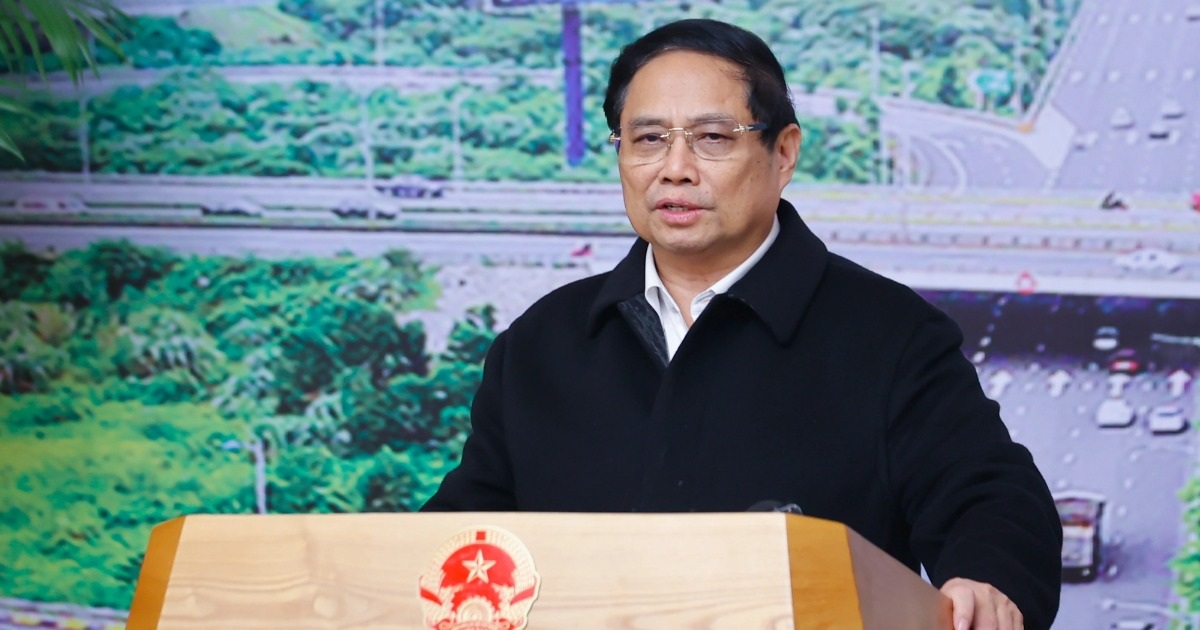Prime Minister Phạm Minh Chính has concluded a meeting of the National Steering Committee for key national projects, focusing on transportation infrastructure. He emphasized the critical need to accelerate the completion of these projects to boost economic growth, create jobs, and improve the living standards of citizens.
Driving Growth and Addressing Practical Issues
According to Prime Minister Phạm Minh Chính, investment in transportation infrastructure plays a crucial role in socioeconomic development. Implementing these projects not only stimulates economic growth but also generates employment opportunities, enhances livelihoods for citizens and businesses, and unlocks new development possibilities. Modern infrastructure fosters increased land value and facilitates the development of industrial zones, service sectors, and urban areas.
Specific Requirements for Key Projects
The Prime Minister highlighted several constraints in project implementation and demanded prompt solutions. Specifically, Deputy Prime Minister Hồ Đức Phớc was tasked with directing the Ministry of Finance to review relevant laws on public investment, public-private partnerships, and bidding to propose solutions for the upcoming parliamentary session. This review aims to create a more favorable environment for businesses, enhance oversight, expedite the resolution of violations, and combat corruption.
Project Completion Deadlines and Land Acquisition
The Prime Minister instructed local authorities to ensure timely completion of investment preparation procedures for high-speed road projects, particularly the submission of feasibility studies. Regarding land acquisition, he urged local governments to uphold commitments and mobilize the entire political system to address this critical issue.
Securing Funding and Managing Construction Materials
The Prime Minister required project developers to review and report on securing sufficient funding for projects to be completed by 2025. The Ministry of Finance was instructed to expedite the allocation of funds from increased revenue and budget savings, considering projects like the Tuyên Quang – Hà Giang high-speed road and the Quảng Bình coastal road. Concerning construction materials, the Prime Minister directed the Ministry of Public Security to rigorously investigate and address violations related to hoarding and price gouging to ensure transparency in mineral allocation and balance interests among the government, citizens, and businesses. Local governments with mineral resources must strictly adhere to their commitment to zero tolerance for corruption in granting mining permits, as resources are national assets.
Expanding Rail and Airport Networks
The Prime Minister urged the promotion of a “500-day sprint” campaign to complete 3,000 kilometers of high-speed roads. He also emphasized the need for communication and promotion of successful local models. The Prime Minister established seven inspection teams to identify and resolve obstacles concerning key transport projects scheduled for completion in 2025. He required relevant ministries, agencies, and local authorities to provide accurate reports during the inspection process.
Regarding railways, the Prime Minister tasked the Ministry of Construction with collaborating with partners and businesses to advance rail projects connecting Vietnam with China, particularly the Lào Cai – Hà Nội – Hải Phòng route. Specific responsibilities were assigned to certain businesses in this sector. For Ho Chi Minh City, the Prime Minister directed research into assigning a company to develop rail transport (subway or elevated train) connecting Ho Chi Minh City to Long Thành Airport. Finally, the Prime Minister instructed the Ministry of Agriculture and Rural Development to review and address delays related to Long Thành International Airport.
Conclusion
Prime Minister Phạm Minh Chính’s specific and meticulous directives aim to accelerate the development of key infrastructure projects, driving socioeconomic progress. A focus on resolving obstacles, increasing oversight, and preventing corruption will ensure the projects’ successful implementation.



